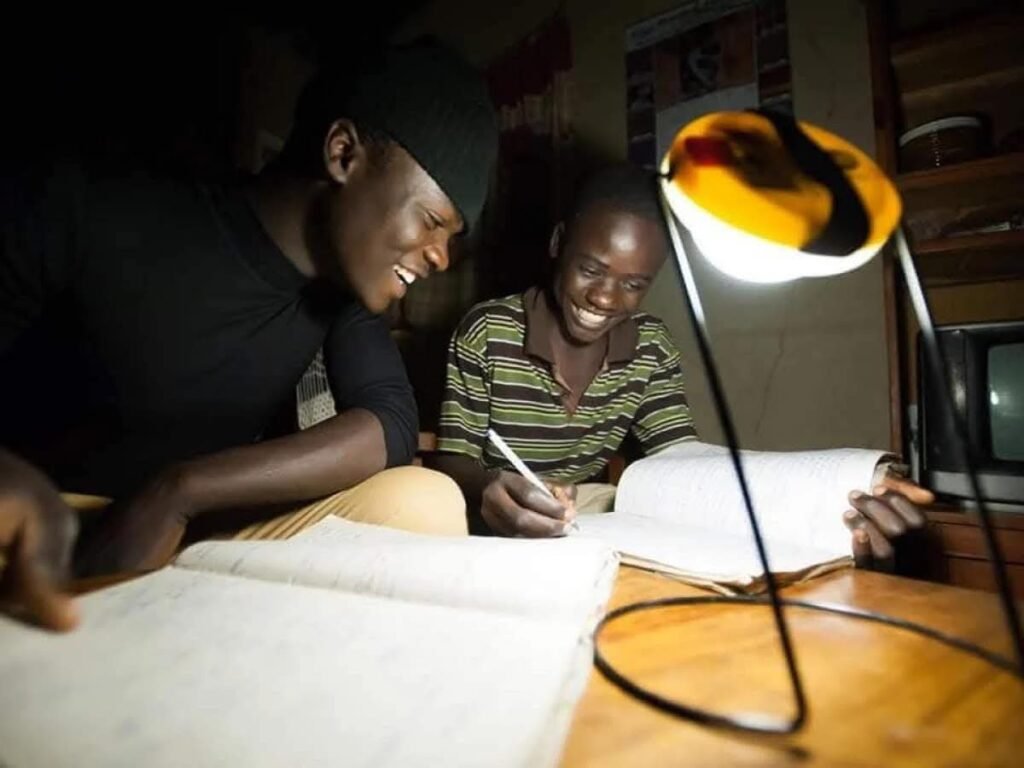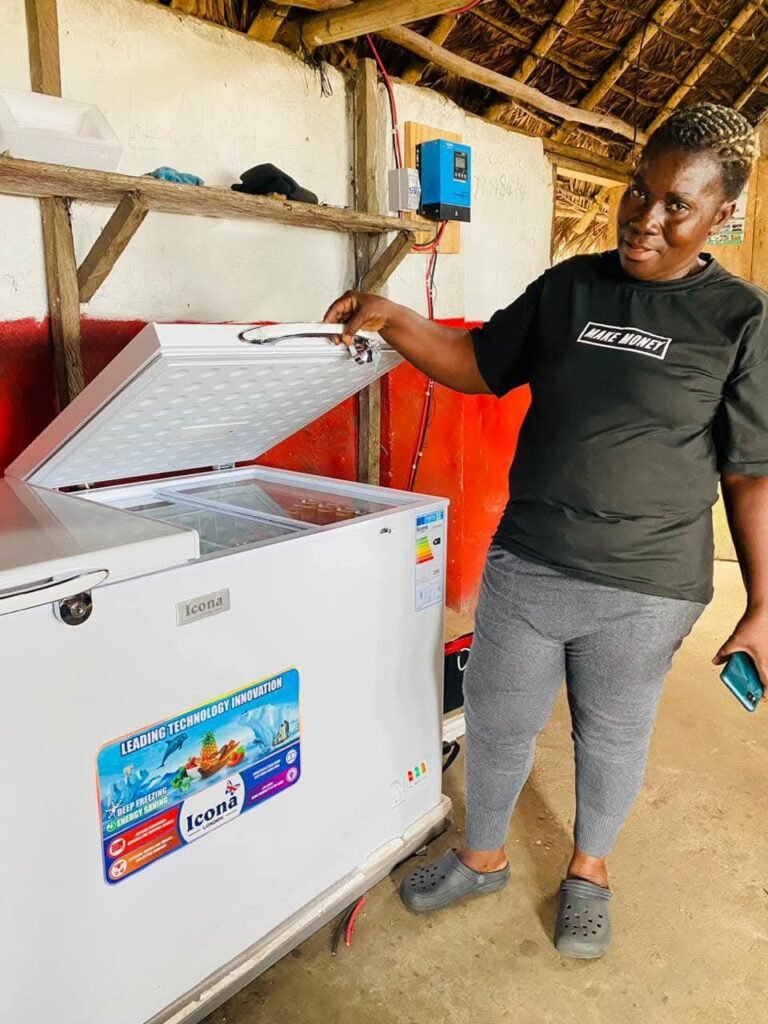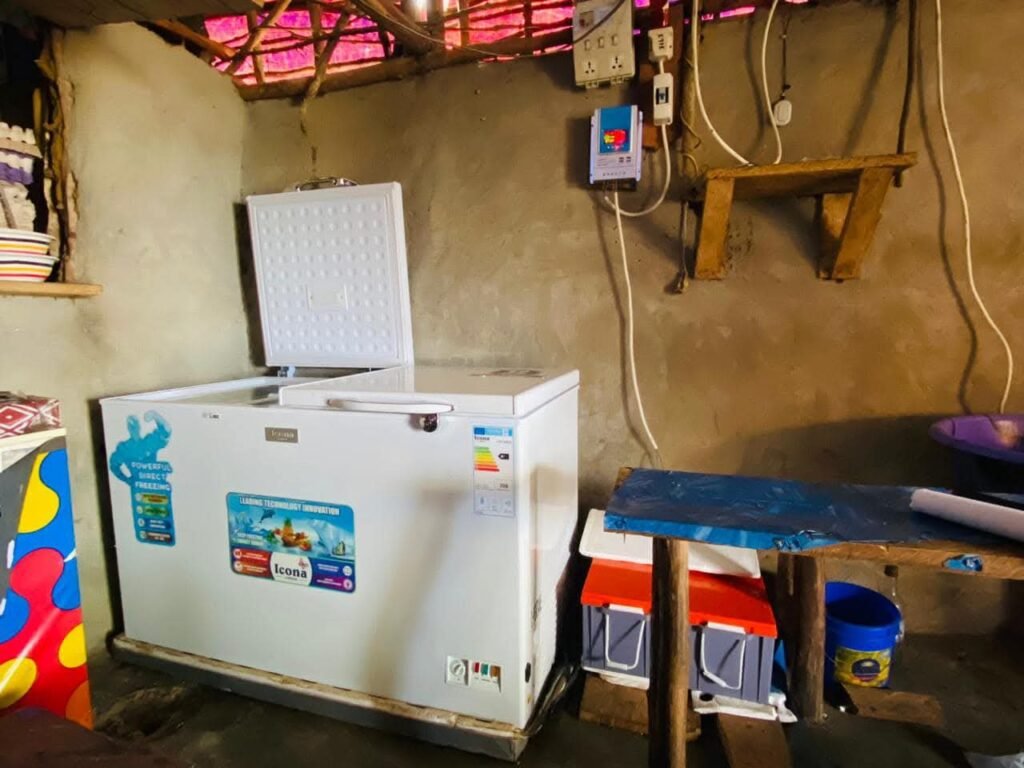Success Stories
James T. Peter is a twenty-three-year-old who lives in ELWA Beach Community, Paynesville. James and his father over 20 years of fishing had always relied on gasoline generator to light their boat during their early morning and late-night fishing trips. James who have inherited his father boat was always challenged with energy problems as using the generator was not only expensive but also harmful to them using the boat. “For the generator, we have to buy 3 gallons of gas every time we go fishing. Sometimes when gas get expensive, we can’t go fishing. Also everyday carrying generator was stressful; the generator is noisy and expensive” James lamented.
Initially, when LEN conducted a marketing outreach at his community, James was skeptical about using solar energy to light his boat. He had never used solar energy before and was unsure about its reliability. However, after several questions and concerns with the Liberian Energy Network team, he decided to give it a try.
LEN installed the solar panel on his boat and Peter was amazed at how well they worked. The panel absorbed the sun’s energy during the day and stored it in batteries, which he used to power his boat’s lights at night. Not only did this save him money on charging costs, but to also improve his fishing experience.

With the Solar light, I can even charge my phone at sea and listen to radio while fishing, I don’t worry about hike in gasoline price anymore and the system is not noisy”
James is proud of his decision to switch to solar energy. He feels good knowing that he’s doing his part to protect the environment. He also noticed that his fellow fishermen are becoming increasingly interested in solar energy and were asking him questions about his experience.
James’s decision to switch to solar energy was a smart one. He’s now able to save money and improve his fishing experience. As more and more people become aware of the benefits of solar energy, we can expect to see more fishermen and boaters making the switch to this eco-friendly and cost-effective alternative.

Cecelia P. Johnson live in Tailor Kru town, a very remote village located in Grand Cape Mount County. The town is not connected to the national grid, so the residents have to rely on alternative sources of energy like kerosene lamps and generators. As a mother of seven children who run a small business selling fish and other perishable goods. She had always struggled to keep her products fresh because she did not have access to a reliable source of refrigeration.
“The distance from this town to the main road where we usually buy gas is almost 2 hours ride, because of the distance, gasoline price is always high here. I used to buy gas every day to make ice and sell to the women but sometimes my money will even leave inside”.

When Cecelia heard about the LEN-PAOP DC Freezer kit she was intrigued by the idea and decided to reach out to purchase one. After a few weeks of communication, the LEN agreed to provide her with a solar-powered freezer.
Cecelia was overjoyed when she received the news. She had never imagined that she would be able to afford a freezer, let alone a solar-powered one. She knew that this would transform her business and improve the lives of her family.
The day finally arrived when the solar-powered freezer was delivered to her doorstep. Cecelia was amazed at how compact and efficient it was. It was powered by a solar panels that could be easily carried in her house. The freezer itself was big and could fit in her shop.
Cecelia wasted no time in stocking the freezer with her products. She was now able to keep her fish and other perishable goods fresh for longer periods, and she no longer have to worry about them spoiling. Her customers were also pleased with the quality of her products, and her sales increased significantly.
Cecelia is grateful to the Power Africa Off-grid Project for the opportunity it has given her. She knew that the solar-powered freezer would not only improve her business but also improve the lives of her family. She is now able to save money on fuel costs and invest in other areas of her business.
“I am so happy for this project and want to appreciate Power Africa for empowering us the women in this community. Solar power is good but very expensive, and a woman like me wouldn’t have afford to pay for this system without paying small small” Cecelia stated.
Cecelia’s story is a testament to the impact that renewable energy can have on rural communities. With the help of the PAOP Initiative, she is able to access a reliable source of refrigeration and improve her business. This is just one example of how renewable energy can transform the lives of people living in remote areas and help them achieve a better quality of life.
Energy tips for rural families
Simple, practical ways to make the most of your solar energy system and keep your family safe, productive, and happy.
1️⃣ Make the Most of Your Solar Light
Place your solar panel in a sunny spot, away from shade (trees, roofs, or clotheslines).
Clean the panel with a soft cloth every week to remove dust.
Switch off the light during the day to save energy for nighttime.
2️⃣ Safe Phone Charging
Only charge small devices like phones, radios, and small speakers.
Avoid charging big devices (like large smartphones, tablets, or power banks) that take too much power.
Do not leave your phone charging overnight — unplug when full.
3️⃣ Battery Care
Do not wait until the battery is fully drained before recharging.
Avoid exposing the battery to extreme heat (like direct sun).
If you notice the light is dimming earlier than usual, check your panel — it might need cleaning.
4️⃣ Family Safety First
Keep the solar light and battery out of children’s reach.
Do not use the system near water (except for Fisher 24, which is waterproof for fishing).
Report any fault immediately to your Sales Mobilizer for support.
5️⃣ Save Energy, Save Money
Use your light in the room you need most instead of leaving all bulbs on.
Plan your charging time during the day so that power is saved for night use.
Encourage family members to share one lighted room in the evening — it saves battery.
6️⃣ Easy Payment & Support
Pay your weekly or monthly fees on time using Mobile Money or through your Sales Mobilizer.
If you miss a payment, your system will switch off until payment is made.
After 3 months without payment, the system may be retrieved. Stay consistent!